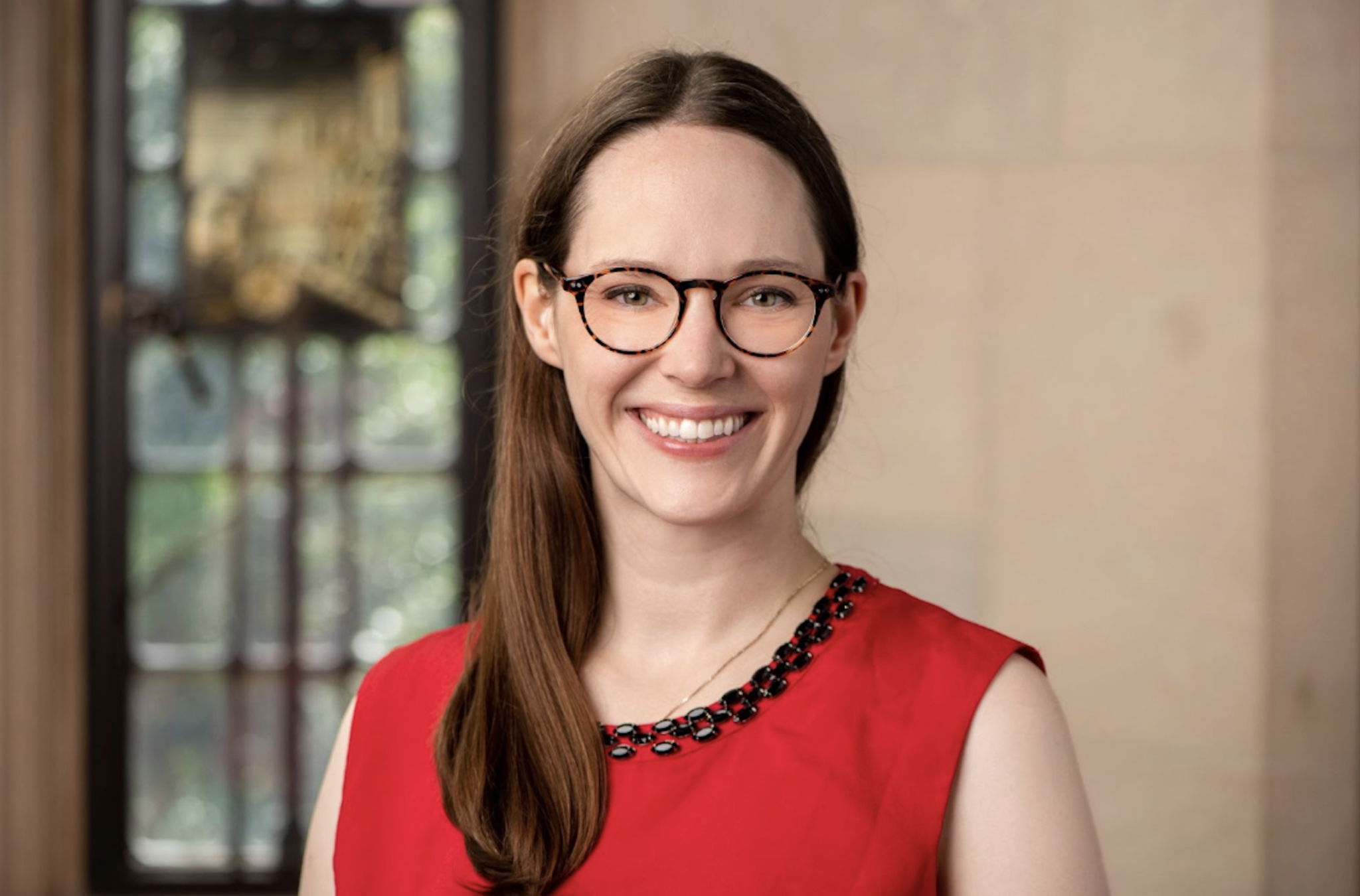Yale professor receives $1.5 million for high-risk virology research
Allison Didychuk’s work studying the packaging mechanisms of herpesviruses earned her the DP2 New Innovator’s Award from the National Institute of Allergy and Infectious Diseases.

Courtesy of Allison Didychuk
Allison Didychuk has been investigating the biochemistry of a cancer-causing herpesvirus since she arrived at Yale in July. Now, with a grant from the National Institute of Allergy and Infectious Diseases, Didychuk’s lab plans to make further inroads into their knowledge of this virus’ genome packaging and transcription processes.
Didychuk, an assistant professor of molecular biology and biochemistry, has centered her research upon the elusive cancer-causing Kaposi’s sarcoma-associated herpesvirus. Currently, there exists one vaccine — but no cure — for any herpesvirus, and most antiviral treatments only target a single protein.
These large, double-stranded DNA viruses have proven historically difficult to combat due to their latency, lying hidden and replicating for decades inside the body before displaying outward signs of infection.
“[These are] very clever viruses that are coevolving with us for hundreds of millions of years, and the fact that they’re able to establish latency means that they’re really hard to get rid of,” Didychuk told the News.
However, Didychuk’s lab has found a possible new avenue to target: the set of packaging machinery, which compresses the KSHV genome into a capsid — a viral protein envelope — via a powerful molecular motor. Due to the stiffness and size of the herpesvirus DNA, the resultant capsule is under immensely high pressure — ten times greater than a bottle of champagne, according to Didycyuk.
By learning and sharing how this packaging process operates from a biochemical standpoint, Didychuk hopes to provide a basis for new drugs against herpesvirus replication.
Specifically, Didychuk’s grant proposal looked to investigate a new drug approved by the FDA, which targets the packaging machinery of herpesvirus. She was intrigued by how this drug was only effective against one type of herpesvirus and, moreover, by the lack of biochemical studies on its function.
Didychuk’s query earned the support of the NIAID, who awarded her the DP2 New Innovator’s Award grant. Providing $300,000 in funding per year, this award is given to early stage scientists who have proposed high-impact projects in areas like the biomedical field.
“[It was] the most exciting morning,” Didychuk said, about hearing news of the award. “When you get to a place like Yale, where everyone is brilliant, … to have just a little bit of recognition … makes me feel like I can actually do this job.”
In her proposal, she pitched looking deeper into the new drug’s biochemical workings to posit new avenues for herpesvirus treatments — how to improve upon the drug’s design, or how to develop complementary drugs that target a different part of the viral machinery.
“Confidently, I can say that Dr. Didychuk’s laboratory will be a very successful one that will positively impact and change the scientific community,” Mayte Cerezo Matías, a postgraduate associate at the Didychuk lab, wrote to the News. “[Her award] from the NIAID reassures this to me, and I couldn’t be more thrilled to be part of such an incredible community that Dr. Didychuk has created.”
Before coming to Yale, Didychuk served as a postdoctoral researcher in the Glaunsinger lab at the University of California, Berkeley. It was there that she fell in love with virology while learning how to apply her structural biology and biochemistry knowledge to decoding viral interactions.
Even though she had worked in an unrelated subject, yeast splicing, in graduate school, Didychuk said it was “particularly empowering” to see how she could “take risks and jump into a new field.”
Now, as a junior faculty member at the School of Medicine, Didychuk is busy setting up her new lab. She acts as a mentor to several trainees, including Sara Gelles-Watnick MED ’26, who described Didychuk as a “brilliant scientist and thoughtful mentor,” adding that she is “lucky to learn from her each day.”
Didychuk joked that she could enjoy “a little bit of breathing room” in managing her lab’s funding thanks to this grant money. The DP2 New Innovator’s award falls under the NIAID’s “high risk, high reward” programming, which alleviates the financial stress of experimenting with especially novel approaches.
“They kind of give you this money and say, like, ‘shoot for the moon’ and then see what you can do with it,” Didychuk said.
The DP2 New Innovator’s Award is sponsored by the National Institutes of Health.







